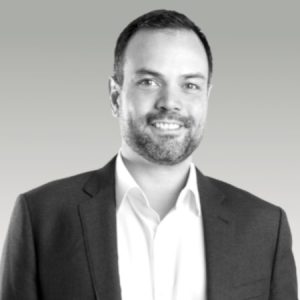
Rich Fernandez
Guest is known for...
Rich Fernandez is the CEO of Search Inside Yourself Leadership Institute (SIYLI), a non-profit organization that provides mindfulness and emotional intelligence training to individuals and organizations. SIYLI was founded in 2012 after a successful internal course at Google and has since expanded globally to work with various corporations, nonprofits, and government organizations. Fernandez was previously a Director of Executive Education and People Development at Google.
Here's what I will learn...
Rich Fernandez, CEO of Search Inside Yourself Leadership Institute (SIYLI) and former Director of Executive Education and People Development at Google, speaks about leadership development in high-growth companies such as Google. He emphasizes the difference between performance and potential and the importance of cultivating various types of attention. Other topics include meditation, response flexibility versus reaction, meta-distress, building a positive mindset, and three levels of resilience. This conversation is useful for leaders in the tech industry seeking to enhance their leadership skills as they scale their organizations.
LISTEN TO THE FULL CONVERSATION

From the Podcast
Rich talks about how Google things about spotting potential and about Leadership Development. He quotes an interesting statistic from a piece of research by Corporate Leadership Council. He said that they found that that in 71% of the time people who are high performers were not high potentials but conversely 93% percent of high potentials are also high performers. He also goes on to talk about “Googliness” a term that encapsulates some of the softer aspects of an individual that flourishes inside Google.
Rich talks about the origins of the Search Inside Yourself programme. It started out as a quest for Googlers looking for a solution to stay agile and resilient while you are on a “rocket-ship”. He also goes on to talk about how SIY brings in wisdom from multiple domains ranging across Neuroscience, Mindfulness and Emotional Intelligence to help people develop a new kind of intelligence that enables them to cope with the roller-coaster ride of a tech driven company
We normally think of attention in broad terms but Rich breaks down the various types of attention. He speaks about Attention being the ability to focus our mind on something specific and Meta-Attention being the ability to pay attention to our attention and have the ability to bring it back when it wanders.
Rich talks about how he thinks about ritualizing meditation and baking it as a hygiene in the way he goes about leading his life. He also talks about the importance of not treating meditation just as a separate activity that we do once a day but suggests that weave in meditation in the small things we do through the day. He also speaks about the importance of rituals to manage our attention in the digital economy.
Rich speaks about the benefits of journaling and refers to research in neuroscience that suggests that journaling is superior to typing on a digital device given the speed at which we do each of the activities. He also has some pointers around how people can start the practice of journaling in their lives.
Rich discusses the distinction between choosing a response to a situation and reacting. He also speaks about the difference between events that unfold and the story we tell ourselves about the events that unfold. He links it to the notion of agility where he says we need to be agile in the way we stay present to the world around us and that agility is a prerequisite for us to be agile as leaders in the business context.
Rich speaks about three levels of resilience – Inner calm, Emotional Resilience and Cognitive Resilience. He talks about the example of Captain Sully Sullenberger (who miraculously landed the plane on the Hudson river after his plane was hit by birds after taking off from LaGuardia) to talk about how calm and composed he was and stayed present during the ~3 minutes he had between the bird hit and when he landed the plane.
Rich speaks about why we have a negativity bias as a default setting. He traces it back to human evolution and talks about the fact that for us to survive, it was critical to attach a higher weightage to negative signals in the environment than the positive ones. He links it to the criticality of ensuring psychological safety in a team (results of Project Aristotle in Google) to drive business performance.